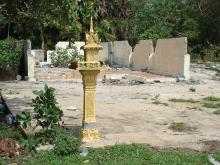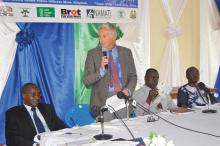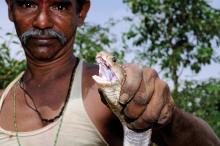Land Library
Welcome to the Land Portal Library. Explore our vast collection of open-access resources (over 74,000) including reports, journal articles, research papers, peer-reviewed publications, legal documents, videos and much more.
/ library resources
Showing items 1 through 9 of 126.This is the dataset from 26.03.2024 of Land Portal's Projects Database - a dataset curated by the Land Portal's team. The dataset includes information about +3,800 development projects with objectives related to land governance.
The report is based on a collaboration between the Council for Scientific and Industrial Research (CSIR) in South Africa and the Land Portal Foundation, in collaboration with local partners, in individual countries.
Access to land is key to achieving food security, poverty alleviation, social equity and environmental protection. A brief insight in land governance-related principles and policies of the German development assistance.
The land reform process in Cambodia is full of examples of injustice and human rights violations. Promises to improve the situation of the landless and land-poor citizens have remained unfulfilled. Development co-operation efforts have not changed this either.
Sierra Leone is one of the least developed countries in the world and is still recovering from a civil war that ended in 2002.
Does the inclusion of land rights in the global development agenda bear the potential to promote the secure and fair distribution of land rights? Yes, our author believes – provided that the land-rights community does not rest on its laurels and really addresses the crucial aspects.
On the 11th May 2012, the Committee on World Food Security of the United Nations adopted the Voluntary Guidelines on the Responsible Governance of Tenure of Land, Fisheries and Forests (VGGT).
Snakebites are a crucial, yet underreported issue in many South Asian countries. In India, they kill some 50,000 people every year. However, the government has neglected the issue. Now, it’s time to seriously address this all but forgotten public health problem, our author maintains.
From 25 January to 5 February 2016, the Land Portal hosted a discussion on the Gender Evaluation Criteria (GEC), a flexible framework comprised of 6 criteria and 22 evaluation questions with possible indicators that can be adapted to a wide range of different situations that were developed as a f









